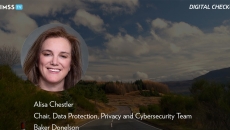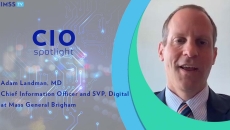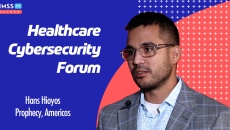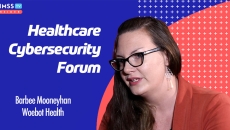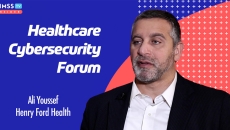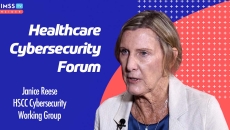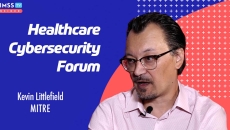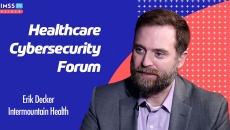Privacy & Security
Over the last four or five years, incidents have changed from one-off events to criminal conspiracies, says K&L Gates partner Gina Bertolini, a healthcare regulatory attorney.
Alisa Chestler, chair of the data protection, privacy and cybersecurity team at Baker Donelson, questions whether $20 million in annual funding from a new Behavioral Health Information Technology Coordination bill is enough to move the needle.
Mass General Brigham has a digital team strategy with one focus on reducing the documentation burden, says CIO Dr. Adam Landman.
MorganFranklin Consulting’s Ferdinand Hamada and Matt DeFrain offer their perspectives on the current threat environment and how health systems can build better cybersecurity resilience and business continuity strategies.
If you're not continually learning about healthcare cybersecurity, you’re putting your organization at risk. Hans Hioyos, field CISO for Prophecy, Americas, explains the importance of attending the HIMSS Cybersecurity Forum for healthcare leaders.
Security should be integrated into every department of a healthcare organization. Barbee Mooneyhan, VP of security, IT and privacy at Woebot Health, explains the need to treat security as a necessity, not just a cost center.
Ali Youssef, a cybersecurity director at Henry Ford Health, says specialized tools can detect and limit attacks before they spread, but health systems should take the approach of assuming that bad actors are already on their network to be able to react quickly.
Janice Reese, an advisory member of the HSCC Cybersecurity Working Group, discusses data security for healthcare mergers and acquisitions, and moving patient data from legacy systems into a single, secure source of truth.
As more patients receive hospital care at home using digital health devices, Kevin Littlefield, principal for cybersecurity at MITRE, talks about the existing and upcoming guidance on how hospitals can apply privacy and security mitigations within their various implementations.
Erik Decker, vice president and CISO at Intermountain Health and chair of the Health Sector Council's Cybersecurity Working Group, discusses the group's collaboration with the U.S. government to support healthcare data security mandates.

